








With COVID-19 restrictions easing and artists getting back on the road again, it has become alarmingly clear that some concert-goers have forgotten how to respect artists in their places of work - and what is meant to be a safe space for both the artist and the audience to enjoy the joint experience of a live show together.
When Mitski tweeted recently that people in the au dience filming her entire set on their phones made her feel a disconnect between herself and the crowd, she explained: “But sometimes when I see people filming entire songs or whole sets, it makes me feel as though we are not here together. This goes for both when I’m on stage, and when I’m an audience member at shows... When I’m on stage and look to you but you are gazing into a screen, it makes me feel as though those of us on stage are being taken from and consumed as content, instead of getting to share a moment with you.
Ultimately it’s your night, and I want you to enjoy it as you like. I don’t want to be greedy, I’m fortunate to get to play! Just putting out there that sometimes, if we’re lucky, we can experience magic at a show.”
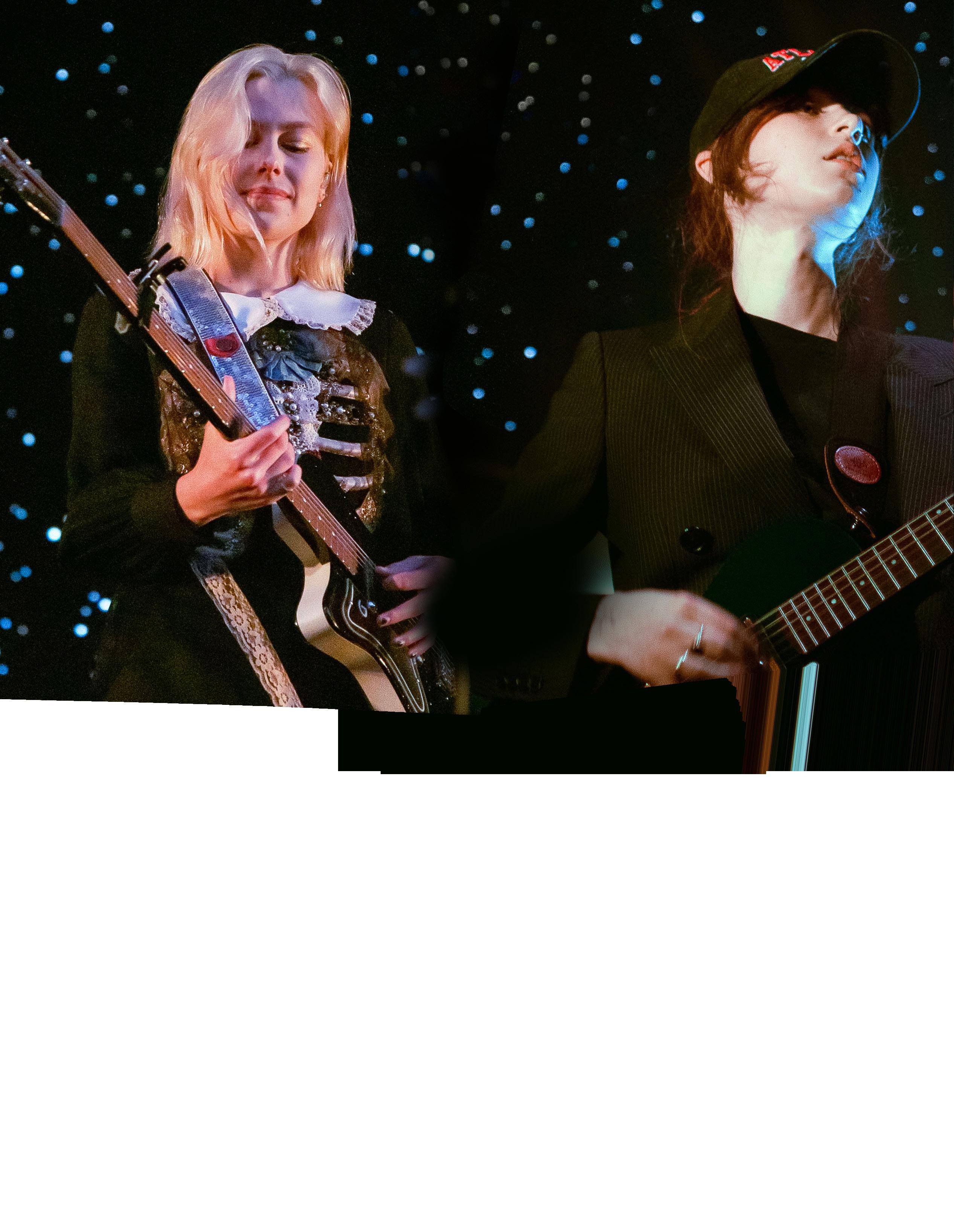
Fans and foes of Mitski alike dog-piled on the state ment, ultimately leading to the thread being deleted. Clairo recently rescheduled ‘Sling’ tour dates after she came down with a sinus infection. Via an Instagram sto
ry, the artist ended her announcement saying: “I also just need to take a step back from performing in gen eral (for a little bit) I hope you understand.” This state ment comes alarmingly soon after videos were shared online of concert-goers shouting, “You’re so hot,” during a performance of ‘Blouse’ (a song that details her experiences of being sexualised in the workplace) at a recent show.
This all comes eerily soon alongside the rise of the ‘tiktokification’ of ‘sad girl’ female artists like Mitski, Clairo, Phoebe Bridgers, and more recently, Lucy Dacus. With the term ‘tiktokification’ referring to the reduction of these artists down to a ‘sad girl’ mentali ty, downplaying these women’s emotional experiences and characterising them by their trauma, or demand ing they be something that they’re not.
In response to a fan saying her music is for “sad bitch es”, Mitski said earlier this year: “The sad girl thing was reductive and tired 5-10 years ago and it still is today. Let’s retire the sad girl shit, because sad girl is over.”
Last year, Lorde faced similar criticism over her latest album, ‘Solar Power’, in which she finds a new sense of joy, with critical fans mourning the one-dimensional ‘sad version’ of Lorde that they thought they knew. It’s hard to know where the line between adoration and
disrespect lies when it comes to supporting artists...
Obsession is a quintessential part of growing up, but the way young fans latched onto these artists during isolation was something else. Parasocial relationships were bound to happen as teenagers abstracted these artists into the personas Gen Z created based on their discographies. But with only past videos and interviews to pore over, these teenagers turned the idea of seeing these artists live as the fulfillment of their understand ing. They knew all the words to every song, they knew their favorite artists’ philosophies. The missing piece was an experience beyond a phone screen.
Is shouting aggressively complimentary statements during a sensitive song loving?
Is filming your favourite artist’s entire set causing a disconnect?

Is it reductive to stereotype women artists by personas forced upon them?
It’s all a lot to think about, but it’s hard to sit back and watch this snowball into a toxic real-world environment that artists are now having to endure as a part of sharing their art.
“The tiktokification of Mitski, Clairo, Phoebe Bridgers, Lucy Dacus etc. has been the worst thing to happen in the history of the entire world.“
-@ylrac on twitter
“Everyone being mad at Mitski for saying that saying that phones kind of ruin the vibe at her shows is so weird.“
-@vancethot on twitter
“Someone shouting ‘you’re so hot!’ At Clairo after performing ‘Blouse’, a song about her being sexualized in the workplace... Her face says it all. Please please we need to do better people!!! Be nice!!!“
-@HAIMclown on twitte
For a young musician to crash, suddenly, into renown and adoration can be disorienting. Writing and per forming songs may turn fraught with expectations. The road becomes home; communing with audiences of strangers stands in for human connection. It’s a dream — and also just plain weird.
At least Julien Baker, Phoebe Bridgers and Lucy Da cus have one another.Each in their early 20s, all three
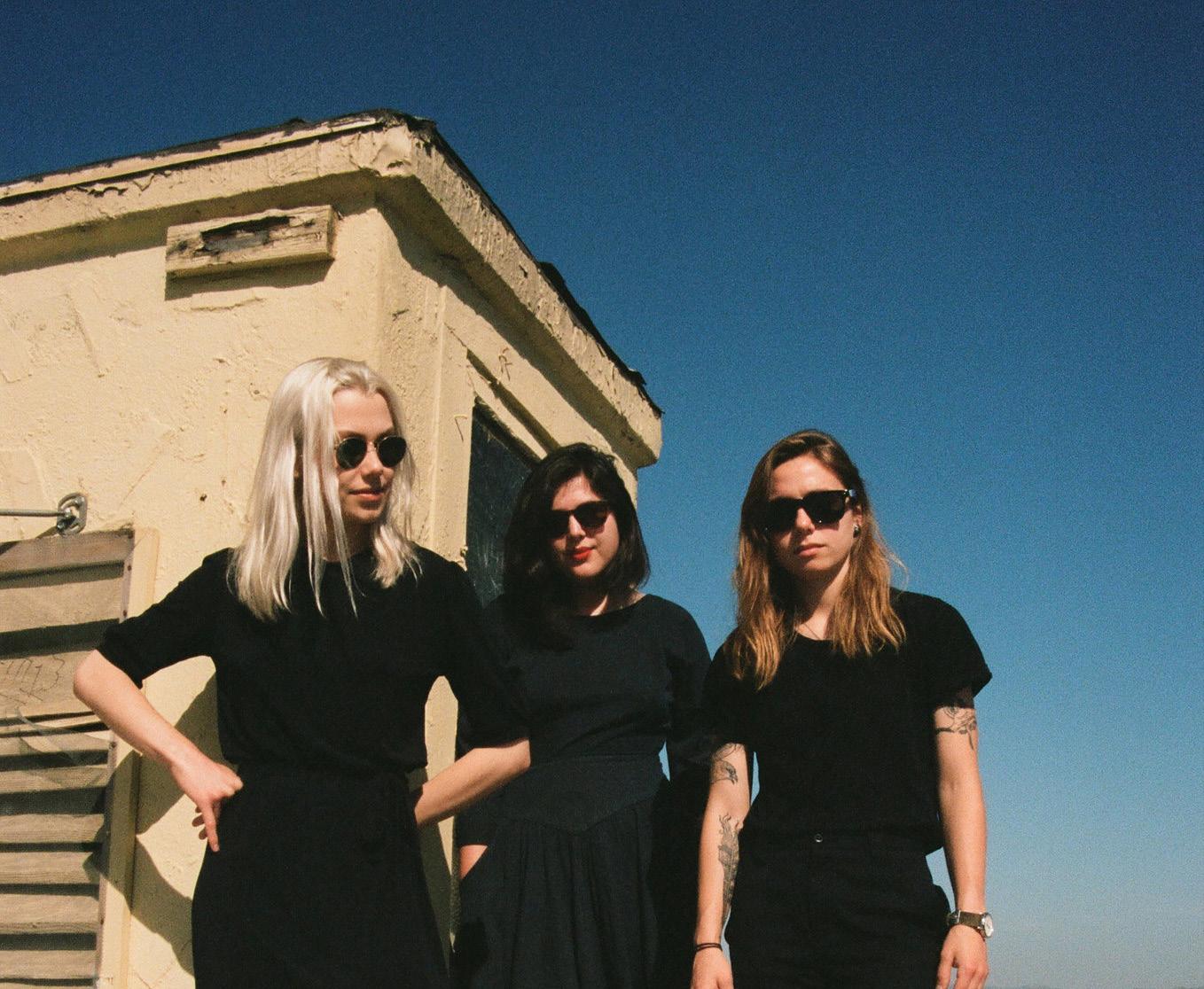
have emerged in the last few years as singular forces in indie rock, earning acclaim for preternaturally sharp lyrics and commanding voices on albums that have set the bar for a new generation of singer-songwriters. They have also found common ground in their mutual isolation.
“It feels amazing to have people understand that I’m si multaneously so anxious and so bored and so busy all at once,” Ms. Bridgers said recently. “And so lucky.” Ms. Baker explained: “Things were happening for us all at the same time and I think we’ve gravitated to each oth er. Our personalities are really similar, how we view the world and our artistry and our position as musicians.” A monthlong tour together this November was an ob vious move. But starting a band on top of that was just more fun. What began as a plan to record a collaborative promotional single to advertise the concerts bloomed
Julien Baker, Phoebe bridgers, and Lucy Dacus about their collaborative new project, and the art of not apologizing.
into a six-song EP by the trio, who have dubbed themselves boygenius — an inside joke that evolved into an ethos.
“We were just talking about boys and men we know who’ve been told that they are geniuses since they could hear, basically,” Ms. Dacus said, “and what type of cre ative work comes out of that upbringing.”
Women, Ms. Baker said, “are taught to make them selves small. So when you’re a woman and there’s a pro ducer or engineer that’s a man, you have to preface your ideas and seal them up in this little box of ‘I’m sorry, this might not be a good idea, this is just my observation…’”
For the “boygenius” EP, recorded over a few summer days in Los Angeles, the three musicians removed men from the equation, writing without their usual collabo rators and self-producing, while also trying to embody some of the very qualities they were avoiding. “If one person was having a thought — I don’t know if this is good, it’s probably terrible — it was like, ‘No! Be the boy genius! Your every thought is worthwhile, just spit it out,’” Ms. Dacus said. “It was a way to do things quickly and confidently. We only had four days to go from zero to something, so we couldn’t waste time self-deprecating.”
The result was what the women described in separate interviews as one of the most fulfilling creative experi ences of their lives, and each was giddy recalling the sessions. “I probably jumped up and down more times in that studio than ever in my life,” Ms. Bridgers said. “When one of us would hit another high note — ughhh, my God! So exciting.”
Ms. Baker called the process “extremely democratic.” Each artist brought ideas — “Like all great enterprises, we have a group text,” as well as a Google Drive, she said — and took the lead on two of the tracks.
While writing, “I tried to think about them and what we shared,” Ms. Dacus said. Distance, emotional and physical, was an overarching theme best encapsulated on the final song, “Ketchum, ID,” in which each woman sings a verse about the melancholy of life on the road.
Ms. Bridgers conceived of the song as a Carter Fam ily number, and its refrain was sung by all three around one microphone: “I am never anywhere/anywhere I go/when I’m home, I’m never there/long enough to know.”
For this “Voltron or Power Rangers robot of indie music,” as Ms. Baker called it, the women cit ed previous supergroup trios like case/lang/veirs and Dolly Parton, Linda Ronstadt and Emmylou Har ris, although the cover art is a winking reference to a Crosby, Stills & Nash album.
Still, the trio, similarly deliberate and measured in every action and utterance, cautioned that they did not want their camaraderie to be played as what Ms. Dacus referred to as a “marketing ploy.”
Ms. Baker said: “On one level I want it to be unre markable that there’s no male to attribute control to. I want it to be unremarkable that three women — six with bass and drums and violin — played on this. But it’s a thing.”
“November is a glowing moment that we’re all ap proaching,” Ms. Dacus said. “Who knows what’s go ing to happen after that? It doesn’t matter.”
"WE Understand each other, because of our age And our careers, but also being women, The way we talk to each other is not with an inflation of ego or with a false persona of harshness."
In Texas last month before the coronavirus shut down touring, one fan at an Yves Tumor concert got a little too excited. “He bit me on my neck!” said the musician (real name: Sean Bowie) by phone. “I was signing his album after the show and was like, ‘Why did you bite me? There’s a pandemic going on.’ He said he just wanted to know what I tasted like.”
Mixing it up with the audience is part of the Yves Tumor proposition. Bowie, who uses both gen der-neutral and he/him pronouns, is a master of anarchic energy with plenty of stories about bloodying fans’ noses at shows. (They never seemed to mind.) The Yves Tumor sound has fre quently shifted since Bowie started releasing al bums in 2015, encompassing cacophonous elec tronic noise and smoky rhythm & blues. Some of the music has been so confrontational, it’s even caused its creator some concern: They said they find “Hope in Suffering (Escaping Oblivion & Overcoming Powerlessness),” a 2018 track that begins with what sounds like a gathering swarm of bees before collapsing into machine-gun blasts and a demonic voice, almost too “terrifying” to listen to.
The latest Yves Tumor album, “Heaven to a Tor tured Mind,” which was released on Friday, veers closer to standard pop. It’s an album of (relative ly) approachable tracks about the common push and pull of the heart, blending tart psychedelia and maximal glam rock. Though earlier work re lied on software and samples, here Bowie mostly used live instrumentation. They produced the al bum along with Justin Raisen, known for a deft hand with both big pop refrains and fuzzy gui tar grit in work for Kim Gordon, Angel Olsen and Sky Ferreira. A number of notable vocalists turn up for steamy duets, including the progres sive cellist Kelsey Lu and Julia Cumming of the Brooklyn indie band Sunflower Bean.
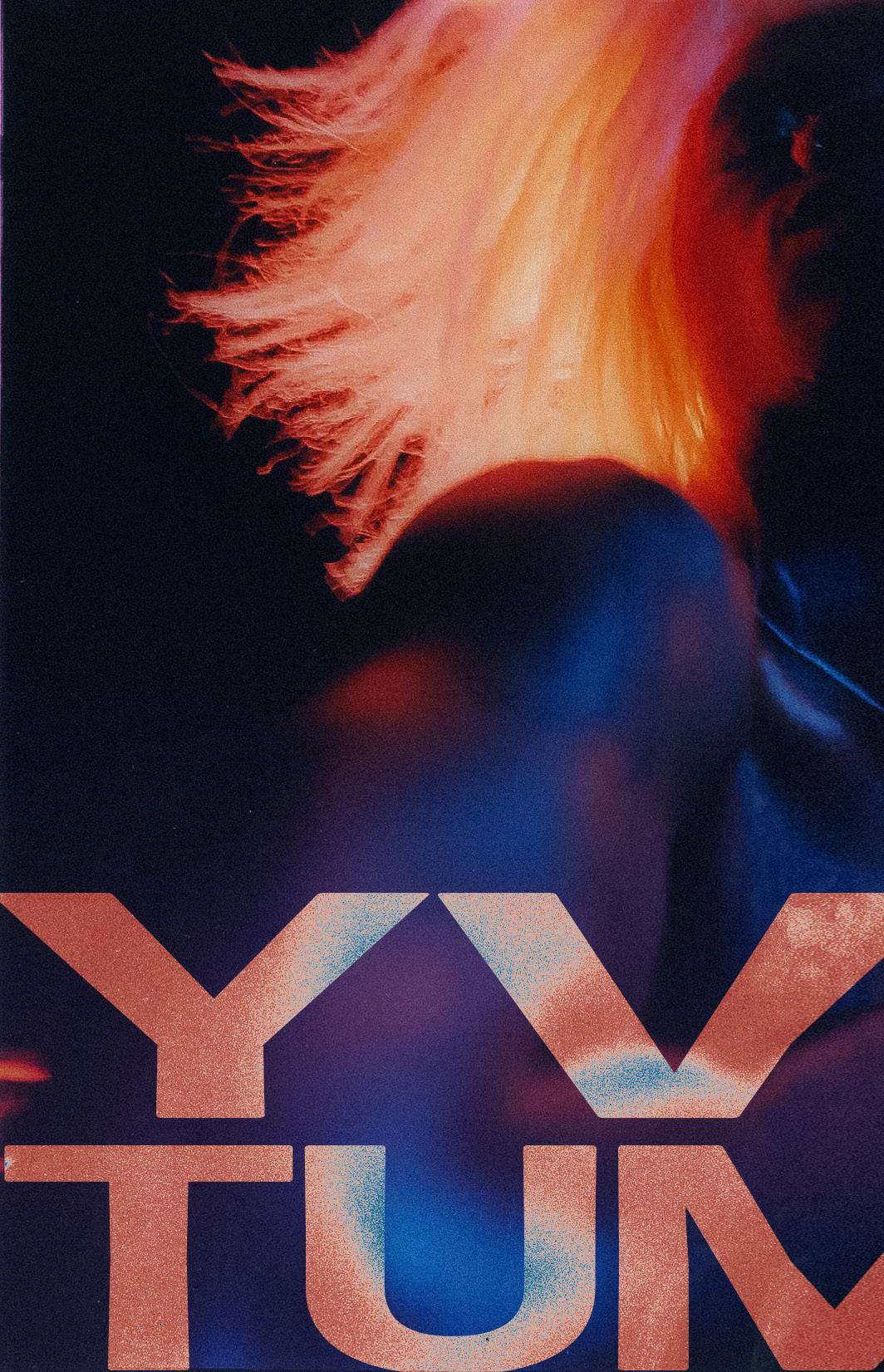
“It’s a buffet of sonnets and emotions,” Bowie said. While Yves Tumor lyrics have often been about end times, love is currently the most spine-chill ing thing on the docket. “It’s scary,” Bowie said. “It’s like being on a roller coaster. You know there’s going to be a huge plummet, but then there’s an uprise.” On “Kerosene!,” a duet with the
R&B singer Diana Gordon over trippy guitar, Bowie’s voice slithers and croaks, imagining a hookup as something flam mable. “He’s in charge, using his sensuality,” said Shayne Ol iver, the designer behind the avant-garde fashion label Hood by Air and a close friend of Bowie’s. “You don’t see black men
“Heaven
moving like him, a male figure identifying with feminine en ergy. Tupac and D’Angelo understood it — people think it’s freakish, but it’s just attractive in a new way.”
As an artist committed to mystique, Bowie doesn’t share much about their upbringing. They were born in Miami and
grew up in Knoxville, Tenn., and figured out how to play the guitar as a teenager by riffing on Nir vana and Green Day songs. After Bowie’s parents confiscated the instrument over poor grades, the young musician learned keys on the family piano, honed a sense of rhythm that came from being raised on Motown and Jimi Hendrix, and started to make amateur recordings in the base ment.
After a brief stint in college, Bowie moved to Los Angeles and fell in with artists like the queer punk rapper Mykki Blanco, who took them on tour. Bowie started releasing music under var ious monikers, but Yves Tumor stuck, and the project’s early music, which patched together field recordings, harsh noise and slinky funk, at tracted a devoted audience.
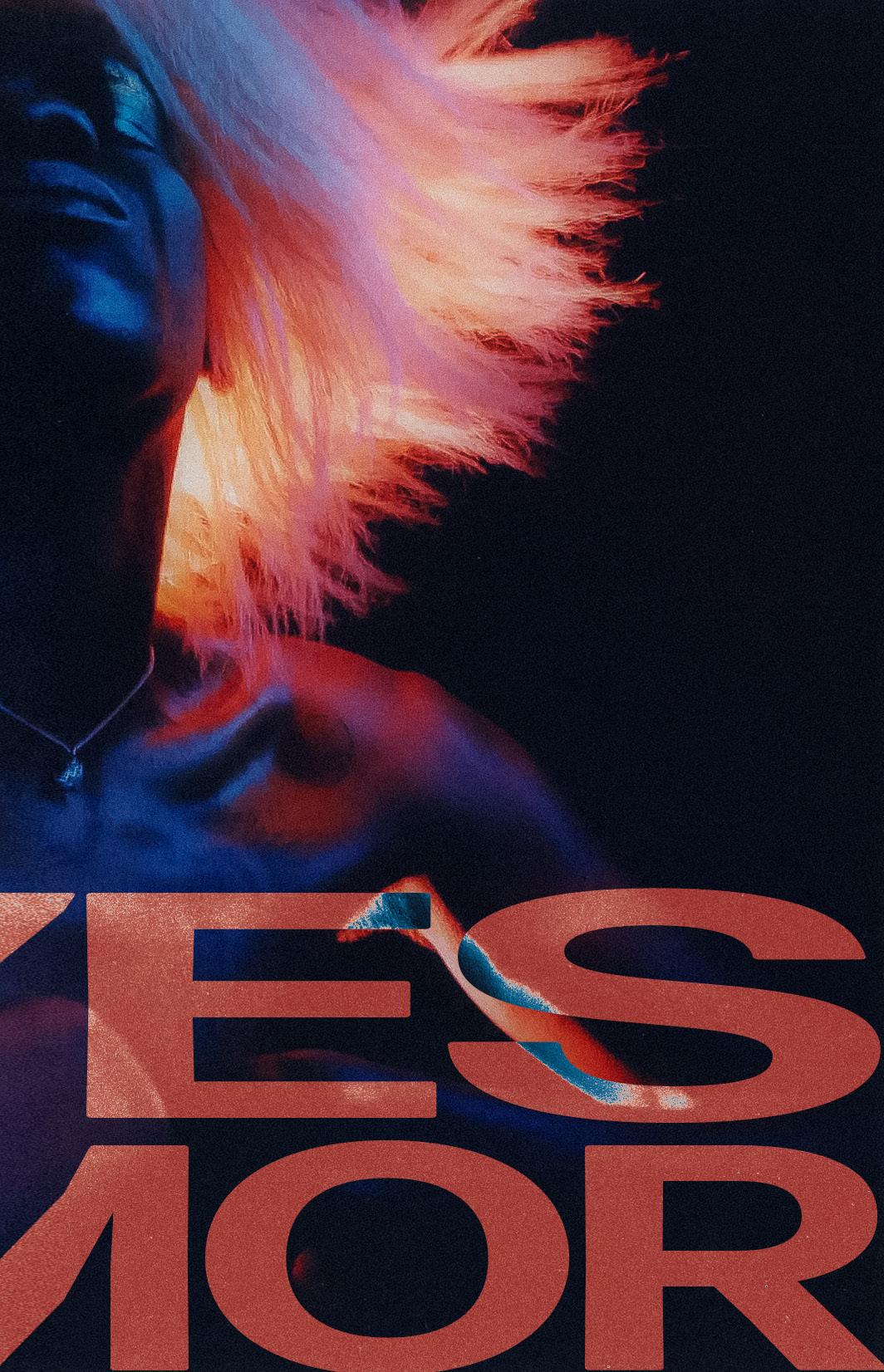
It didn’t take long for Yves Tumor live shows to become the stuff of legend. “I would find the big gest guy in the audience and use him as a prop,” Bowie said. “Crawl on him, hang from his neck by my legs.”
While their production techniques and sonic aesthetics have undergone several transforma tions, Bowie has remained devoted to visual shock. In a clip for the new album’s “Gospel for a New Century,” horns and furry goat legs make them appear as Pan, Greek god of the wild and Pagan symbol of male virility.
“Yves Tumor is the rock star of our generation,” said Jordan Hemingway, a photographer and di rector who worked on the album’s artwork. “The way he acts, that’s something that’s not taught.”
Bowie knows that the term “rock star” is an anachronistic, even cheesy label now. “It’s fun to act like one, to look like one,” they said. “It’s a persona.” Still, there’s power in that pose, enough to ignite crowds for good and, occasionally, for creepy. “I do get a lot of strange attention,” Bow ie said, perhaps still feeling the vampire kiss on their neck. “It’s hard to draw the line.”
The musician known for a constantly shifting sound moves a little closer to standard pop on the new album
to a Tortured Mind,” but remains a master of anarchic energy.

Advanced active noise cancelling technology blocks out the noise, letting you focus on what matters most, the music.
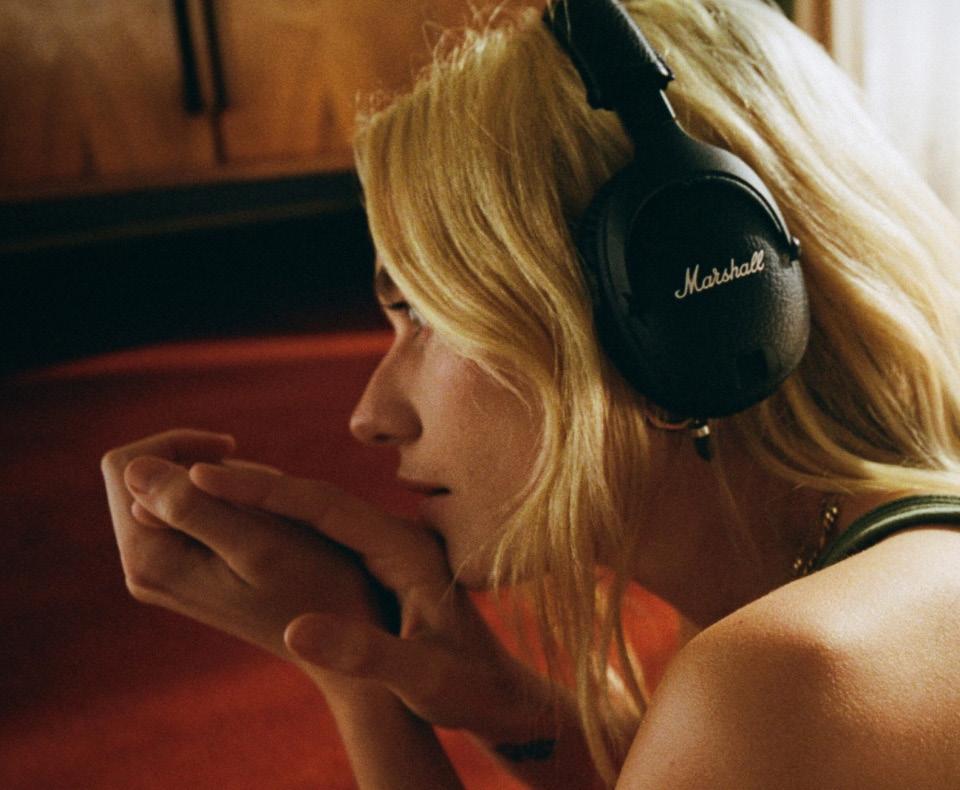
One night in 2018, Hayden Silas Anhedönia found her self possessed by a woman named Ethel Cain. As the story goes—charted chronologically across the sing er-songwriter’s debut album Preacher’s Daughter— Cain escapes the strictures of her religious upbringing only to fall into a doomed romance. The listener is then drawn into her downward spiral of kidnapping, drug addiction, prostitution, and eventually Cain’s murder and cannibalization at the hands of her lover (like any good pop album, then).
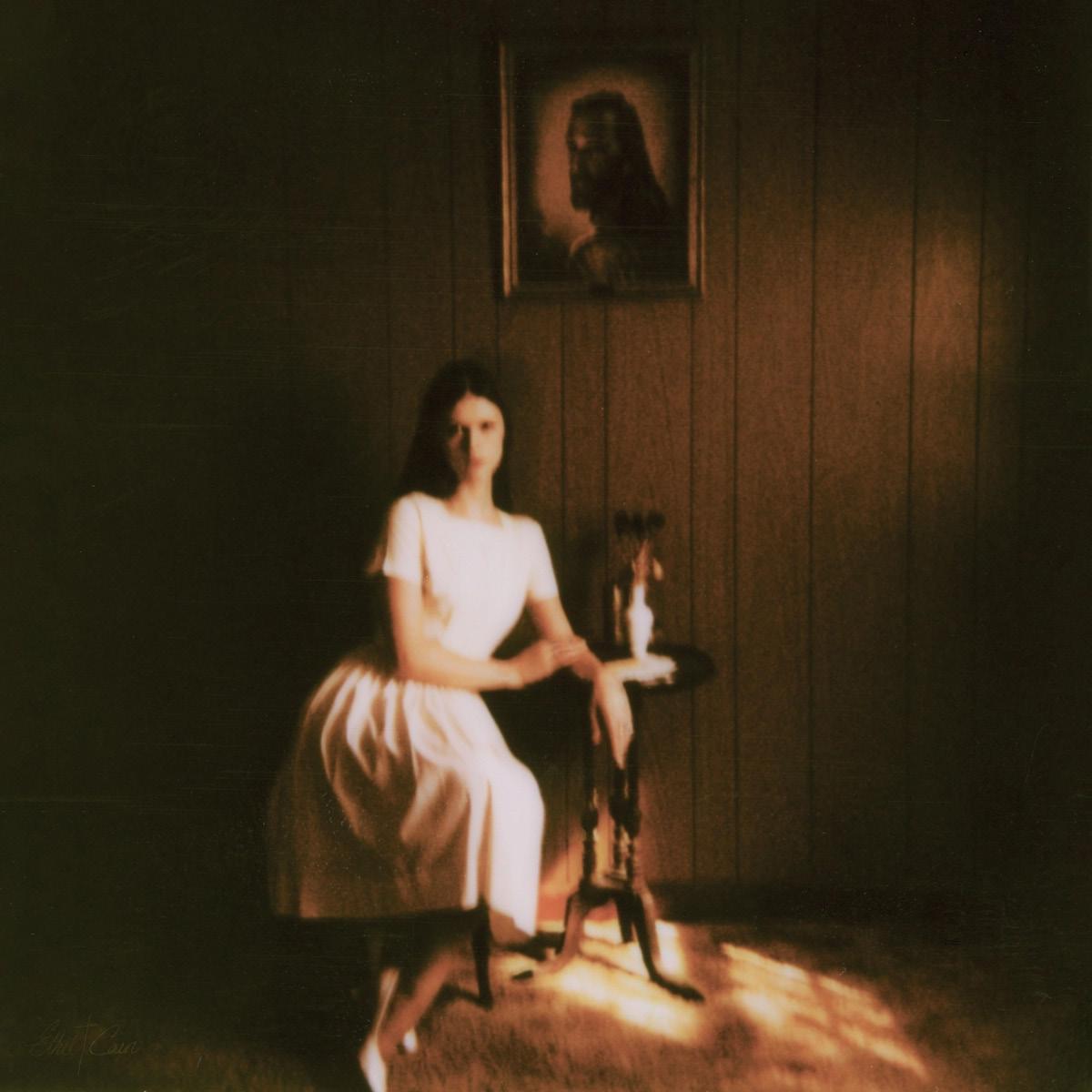
The parallels between Anhedönia and her alter ego begin with the former’s upbringing in a tight-knit Southern Baptist community in the Florida panhandle, where she was homeschooled by her father, a deacon. On Preacher’s Daughter, we meet Cain for the first time in 1991, a decade after the death of her own father, the town preacher. From then on, their paths diverge— Anhedönia and her dad are both very much alive, let it be known—but given the heady, horrifying trajectory of her protagonist, where does Cain begin and Anhedönia end? “We inhabit the same space, at least visually, but I’m very different from her,” Anhedönia says, before deadpanning: “I love to laugh, and Ethel’s dead.”
The ghost of Cain still lingers, though. When we speak, Anhedönia is is preparing to take her cult hit of an al bum out on the road. She’s also developing a multime dia cycle around the character of Cain and her family, which will include a book and a film.
(For the next record, Anhedönia is planning to climb one link further up the family tree and tell the story of Cain’s mother.)
Cain might be dead, but her fate—and that of her an cestry—now feels inextricably linked with Anhedönia’s own. Growing up in a deeply religious, conservative family, Anhedönia always felt like an outsider. At 16, she came out to her mother as gay, sending shock waves through their town. She found catharsis for her inner turmoil in Christian choirs and high school theater pro grams—“I was always singing as a kid,” she remembers,
“I was really annoying”—and began honing her abilities as a musician after decamping to Tallahassee, Florida. There, she experimented with hard drugs and even harder electronic music before experiencing an epiph any of sorts and coming out as trans. She realized that it was time to break away and stake her own place in the world. “I knew then that I wanted to be an artist of some kind.”
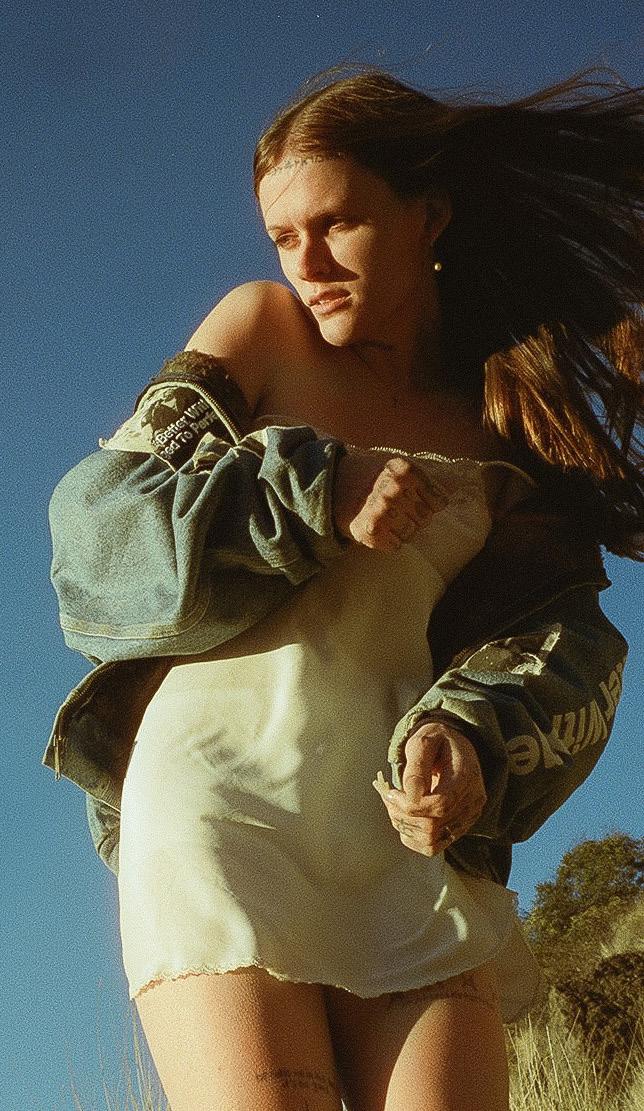
“I’ve been sitting with this person for four years writing this record, and I’m kind of in a middle ground now.”Januarry 12, 2022 | By Michelle Hyun Kim
The British pop-rock phenoms have spent much of the decade growing in size and stature — and as they work on their fourth album, can they become the biggest band in the world?
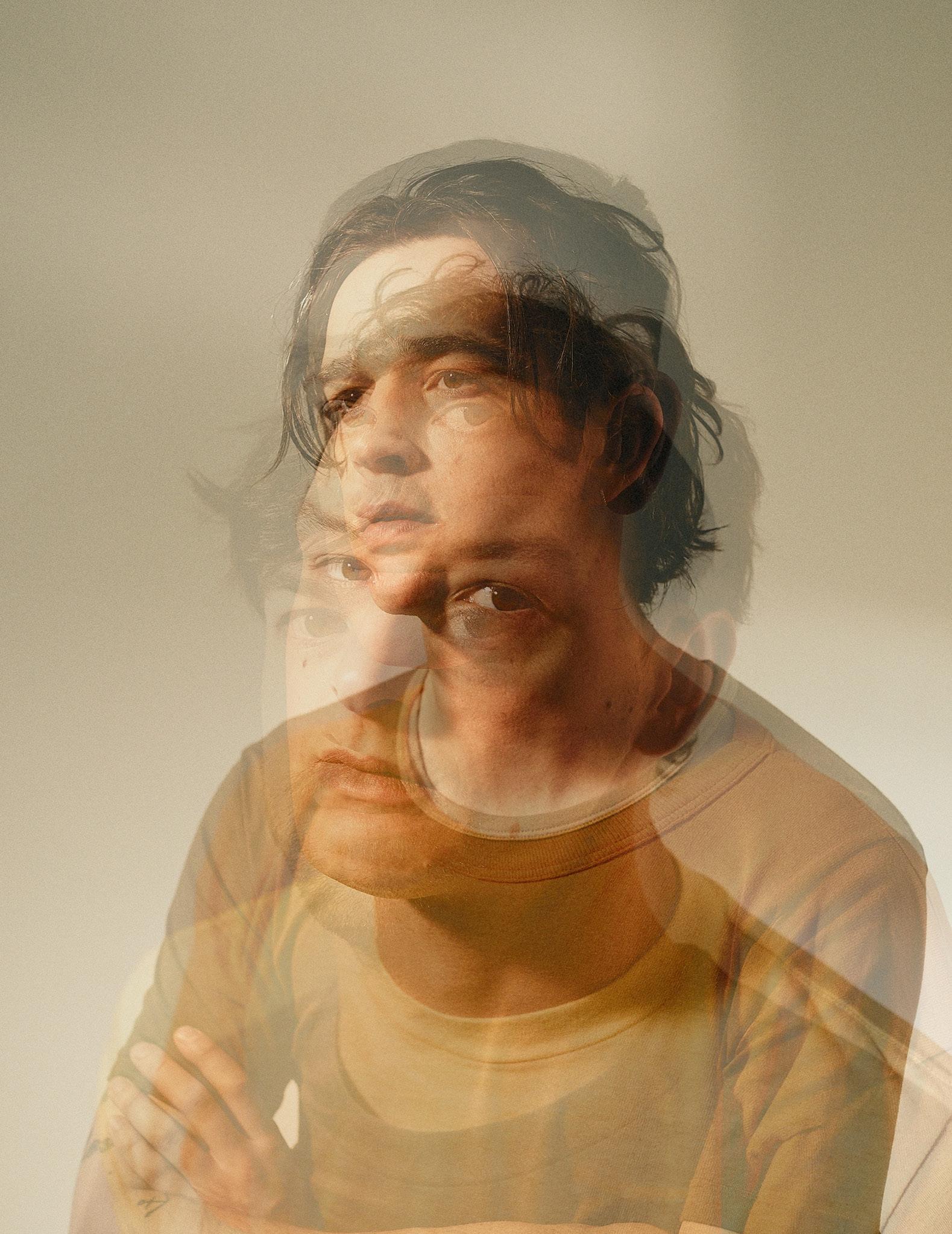
London is melting. It’s July 25, 2019, and the entirety of England is currently in the throes of the hottest day in the country’s history, the final high for the day topping off at 38.7 degrees Celsius (that’s 101.6 Fahrenheit for the North American readers). By the end of the day, a similar heatwave smashes high-temp records in France, the Netherlands, and Germany — incontrovertible proof of climate change’s perpetually worsening effects, and an unfortunate stroke of perfect timing for the re lease of The 1975’s new single.
The night before, the British pop-rock phenoms released “The 1975,” the opening track and first single from their forthcoming fourth album, Notes on a Con ditional Form. Since their self-titled 2013 debut, every 1975 full-length has opened with an intro track named as such, featuring a variation on a hushed, soothing musical motif. This time, the theme is nowhere to be found, replaced by a nearly five-minute monologue from 16-year-old climate change activist Greta Thun berg over subtle strings and tinkling piano. “We are right now in the beginning of a climate and ecological crisis,” she states plainly but purposefully, ending on a literal rallying cry: “It is now time for civil disobedience. It is time to rebel.”
“My mom texted me to say the new song isn’t a bop,” drummer George Daniel laughs. We’re amidst a cav ernous soundstage tucked within Black Island Studios in North Acton, where Daniel, frontman Matty Healy, bassist Ross MacDonald, and guitarist Adam Hann are hard at work shooting the video for Notes’ second single, “People” — a searing, aggressive blast of capi tal-R rock music, as Healy screams about legal weed and a generation that “wanna fuck Barack Obama” before landing on a decidedly radio-unfriendly chorus: “Stop fucking with the kids.”
While enjoying a morning spliff, he enthusiastically ex plains his vision for The 1975’s own headlining slot at this year’s fest, which will kick off with “People” while mirroring the video’s intense imagery. Mid-thought, he’s cut off by a bicycle-bound fan who’s stopped out side the studio to politely offer his admiration. “Wel come to Acton!,” the cyclist offers before pedaling away, as Healy’s initial graciousness takes a darkly humorous turn.
“One of these days, a fan’s gonna walk up to me and go, ‘Are you Matt Healy?’ And then go, ‘Alright then!,’” he
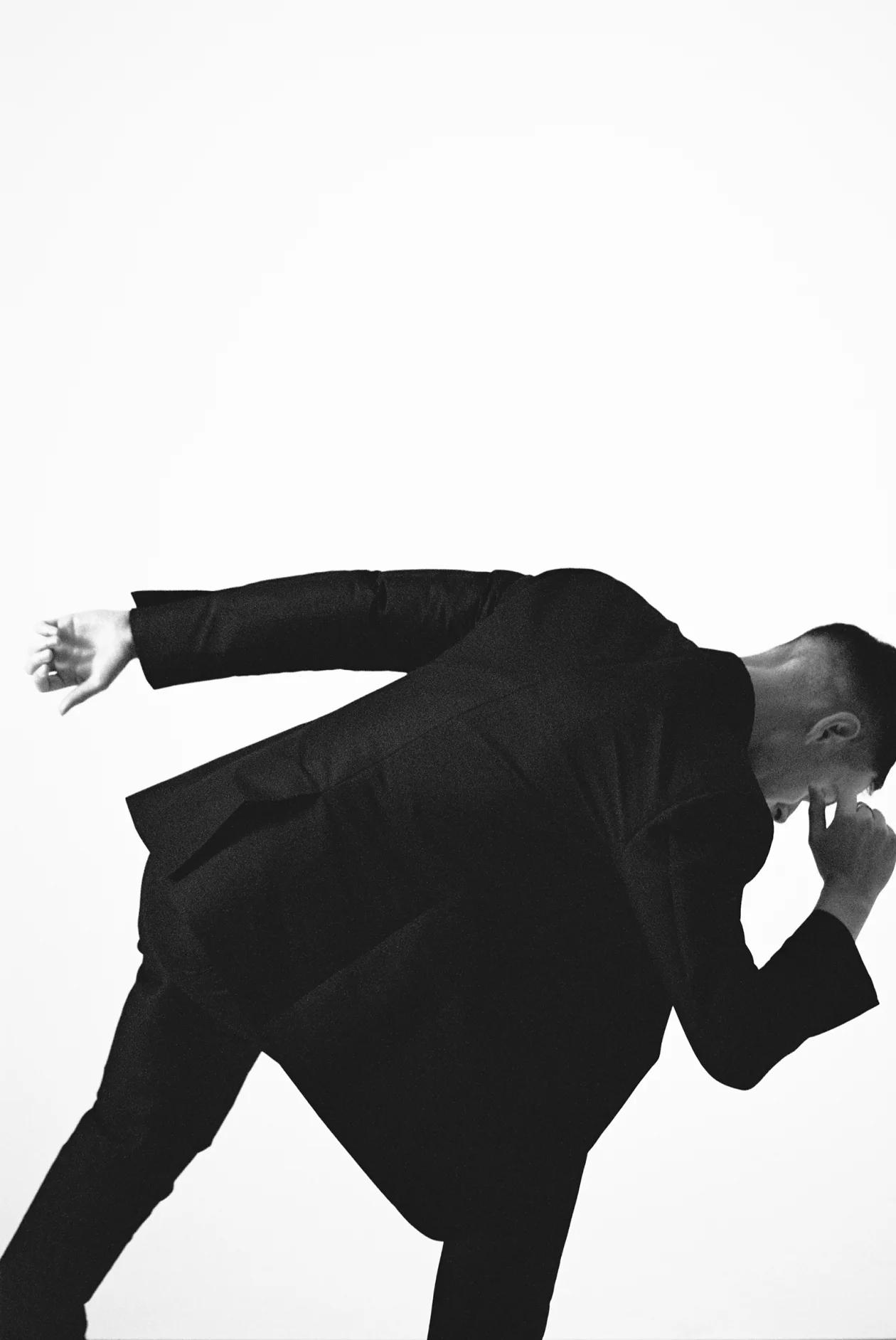
exclaims, miming a stabbing motion towards an invisi ble torso and eliciting laughter from Daniel.
There’s a good reason why defying death is on Healy’s mind. The “People” video is nothing if not ambitious, as the band thrashes in an eyeball-burning box con structed of video screens not unlike the glass-cage per formance captured in “The Sound,” an anthemic single from The 1975’s 2016 sophomore bow I like it when you sleep, for you are so beautiful yet so unaware of it. The screens display oft-gruesome imagery practically main lined from the internet’s darkest, trolliest recesses, and the day-long shoot includes a fast-paced robotic camera that has the capacity to literally kill someone if they get too close to it — not to mention a harnessed, up side-down Healy, swinging to and fro as the crew fran tically tries to capture the perfect shot while the blood rushes to his brain.
Keeping the peace between each other has never been much of a struggle for The 1975 — an astounding feat, considering the quartet have been at it since 2002, when they formed while attending school in the Northwest England county of Cheshire. If their core emotional dynamic has stayed resolute, then The 1975 have done the opposite artistically, essentially engaging in musi
cal dress-up while following wherever their interests take them. Thus far, they’ve proven effective in modes ranging from effervescent pop-rock, tender balladry, and bouncing Afrobeats-inspired motifs, to spiky emo, passionately shout ed anthems, and electronic pop fantasias.
Ambition has abounded: the gargantuan, 70-minute-plus I like it when you sleep featured multiple songs running well over the five-minute mark, while the shorter A Brief Inqui ry included a robot-recited monologue about living online. Both possess the stylistic range of one of Healy’s here-to day-gone-tomorrow Spotify playlists, more often than not sounding a million light years away from the pulsing, sleek emo of their 2013 debut — itself receiving what Healy views as a less-than-welcoming critical reception upon its release. “The critics hated it so much,” he recalls, “but I felt validated by how much the countercultural kids loved it.”
would sound forced and uncomfortable from most of their supposed modern rock peers.
Debuting in the top 5 of the Billboard 200, the al bum as a whole didn’t perform quite as well as its predecessor, which kicked off its chart run at the top; but A Brief Inquiry reflected a different sum mit for The 1975, who went from a well-kept crit ical secret to the center of conversation. Not since Vampire Weekend — another group of impeccably styled and sonically fluid young white men blurring the lines between rock music and everything else — has a band halted the pick-a-side critical discourse so thoroughly in its tracks, with little room in be tween its two opposing poles.
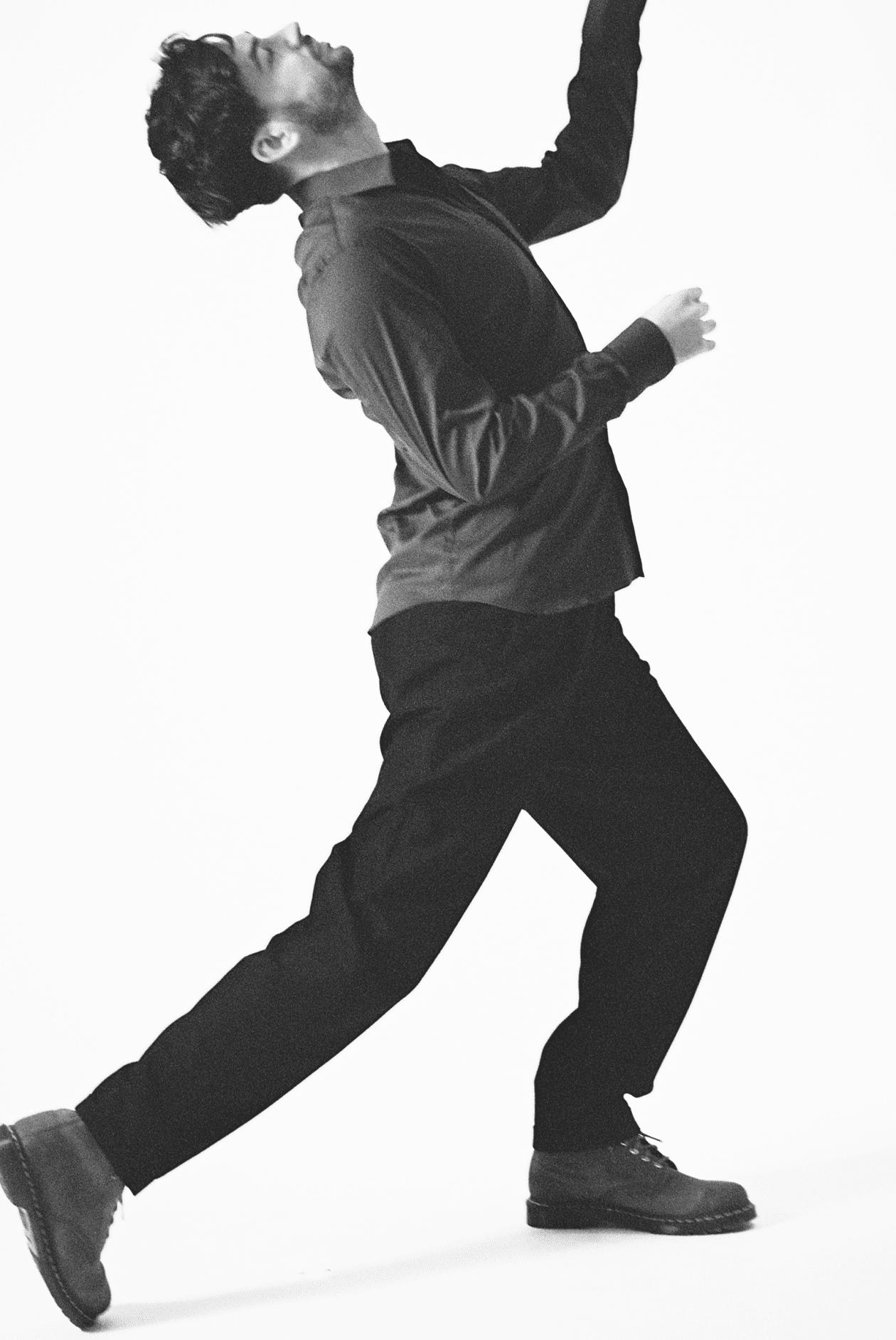
Healy and co. traffic in youth-culture music that often ra diates the generational sincerity of its listeners; “Love It If We Made It,” a titanic slab of pop-rock catharsis from A Brief Inquiry that features Healy shout-singing like an open firehose while namechecking Lil Peep and quoting Don ald Trump tweets, is the type of all-or-nothing gesture that
As a lyricist, Healy casts shapes that are fatalistic, romantic, and tissue-thin in their sensitivity — bear witness to A Brief Inquiry’s penultimate, George Michael-recalling weeper “I Couldn’t Be More In Love,” in which he soars through multiple key changes while pleading, “What about these feelings I got?” It’s easy to hear why they attract a passionately young audience, springing forth from the first generation that’s often forced to learn how to pro cess their feelings in a very public way. “They sound like social media — like someone scrolling,” chuck les the band’s manager Jamie Oborne as he discuss es their generational appeal.
There’s a self-aware promotional side to The 1975’s whole thing, too — a self-aware embrace of “eras” not unlike what’s typically expected from more straight ahead “pop” artists like Ariana Grande and Justin Bieber (two artists who Healy’s cited in the past as peers and influences). Notes is considered part-and-parcel with its predecessor, both forming a sort-of double-album representative of the band’s “Music for Cars” era — a designator that references the title of early pre-debut EPs, as well as the origi nal working title for A Brief Inquiry. The 1975 will try anything at least once — as much a reflection of the streaming generation’s genre-less consumption as it is a willingness to build a career out of perpetual forward motion. This whiplash-inducing tendency to pile left-turn upon left-turn is at the heart of Notes’ one-two punch of “The 1975” and “People” — a literal call-to-arms followed by a furious admission of societal defeat — as well as the decision to throw Thunberg in the mix for “The
1975,” the first time to date the band’s featured an outside collaborator in their music.
And she won’t be the last: Healy intends to log studio time with indie-centric artists like Phoebe Bridgers, as well as Dirty Hit-signed artists beabadoobee and The Japanese House, when the band returns to the studio later in the year to finish Notes. The ostensibly 22-song album is very much still in the early stages of creation, with four songs total in completion or close to it; be sides “The 1975” and “People,” there’s the dusky, acous tic “The Birthday Party,” and “Frail State of Mind,” a 2step-driven slice of pop recalling UK producer Burial with Healy’s gorgeous, cloudy sigh weaving in and out of the beat.
The album is currently penciled in for a February release, despite Healy’s cl aim that it’d be out this past May. “It’s the price that I pay for having real-time expression and an ongoing dialogue with fans,” he says regarding the perceived blown deadline due to his previous statements. “Sometimes I forget that I’m talking to a lot more people than I think.” Mainly, The 1975 have simply been too busy to finish the record; my time with the band is bookended by a gig at Lollapalooza Paris and a brief spate of dates in Russia and Ukraine. After that, more touring in Eastern Eu rope and Asia, studio time to finish Notes — and, then, more touring, this time in the U.S.
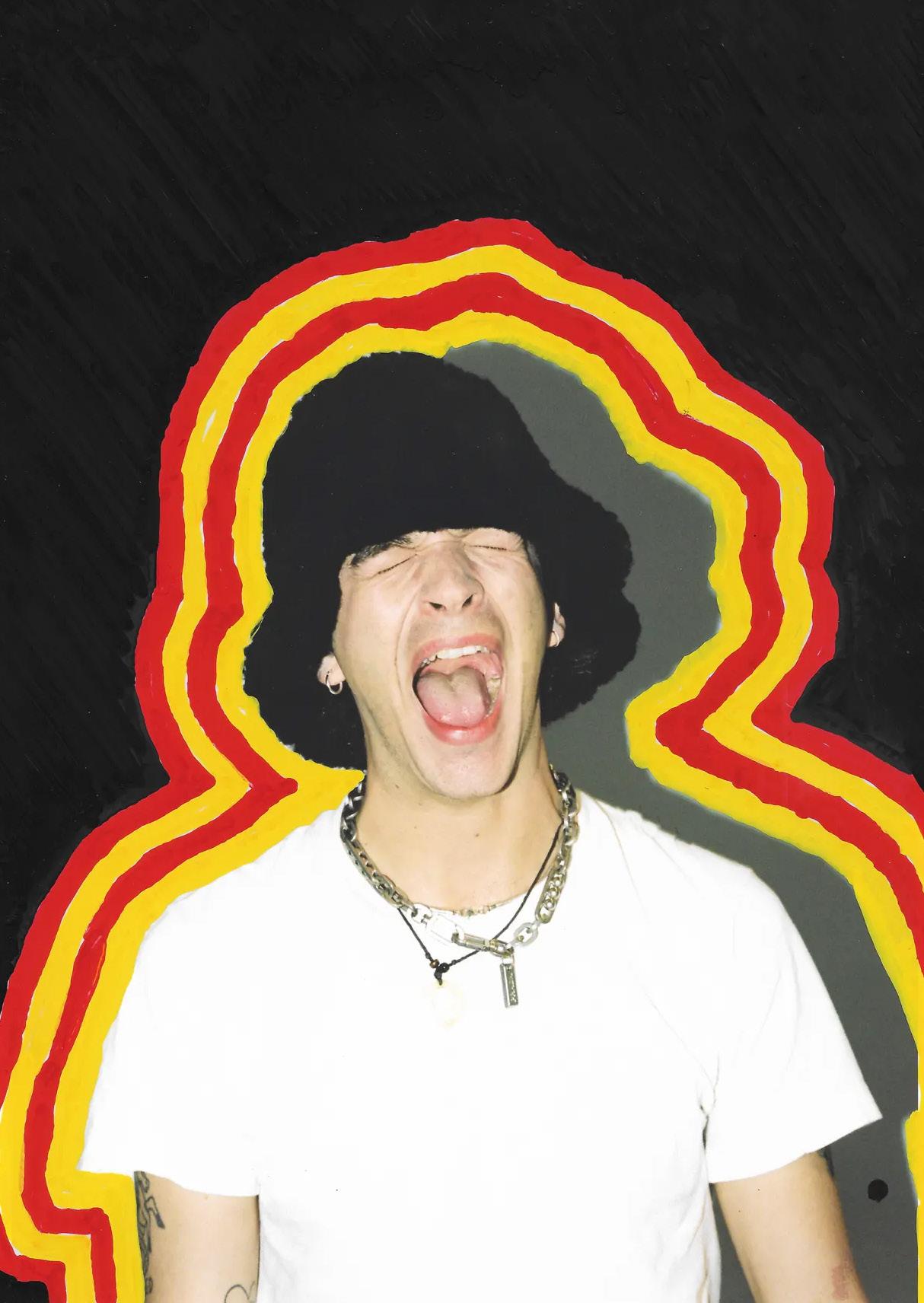
make two records, but this band hasn’t left each others’ side for six years straight. You can’t help but become so immersed.” Immersion sometimes comes at a price: Healy has a professed aversion to “socializing, or new people,” and many of the people in his proximity over the past decade have been collaborators or professional colleagues. For the last three and a half years, Healy’s also been in a relationship with actress and model Ga briella Brooks, and when I ask him about the topic of relationships in general, he demurs — briefly.
“I don’t really want to talk about it, to be honest with you,” he states several times, before admitting that he’s “going through it at the moment...What’s very difficult is being able to nurture things — even if it’s a home space. You take pride in your little that you’ve made, but it’s difficult to nurture all of your relationships. When you’re with your wife and you’re not talking to each other, on your phones — moments don’t not count. When you lose that proximity with people, it becomes really difficult to maintain relationships.”
If Healy’s struggled to keep tabs on some of his closer relationships, then Daniel has rarely bee beyond an arm’s reach. The drummer first entered Healy’s line of sight while the latter was having a go at one of his early band at tempts with Hann and MacDonald. Originally, Healy was playing drums and singing, but he eventually tired of double-duty: “He was like, who’s that weird kid that plays drums?,” Daniel remembers with a chuckle.
“I feel like I’ve been on the same tour since 2013,” Healy states with equal awe and exhaustion. “I stopped to
He describes his first impression of Healy as “the most outwardly passionate person in school — endearing, and intimidating.” Before the quartet were The 1975, they cycled through myriad band names, including
”Sometimes I forget that I'm talking to a lot more people than I think.”
The Slowdown and Drive Like I Do; they played their ear liest shows under the moniker Me and You Versus Them, bashing it out in a Wilmslow town hall that a local council worker had booked for shows. “It was fucking gnarly — our little version of a hardcore scene,” Healy recalls. “Just a lot of drinking and playing music really badly.” As the band went through various embryonic stages, Oborne received a MySpace message containing a YouTube link of the foursome at a gig. “It took me a couple of weeks to pin down Matthew,” he remembers. (“It was easier to contact the dead than it was to contact the 17-year-old me,” Healy concurs.)
“I knew they had great songwriting,” Oborne continues. “When I met Matthew, I felt his presence. I was magne tized to him.” After a few years of continuing to hone their sound, The 1975 signed to Oborne’s Dirty Hit label, which was founded near the end of 2009, as one of the imprint’s first acts. “They were rejected by every major label,” Oborne remembers. “That’s when we decided to do it ourselves.” “People would pass on us because we dressed weird,” Healy opines regarding the rejection they faced in the band’s ear ly years. “The Killers had just happened, The Libertines
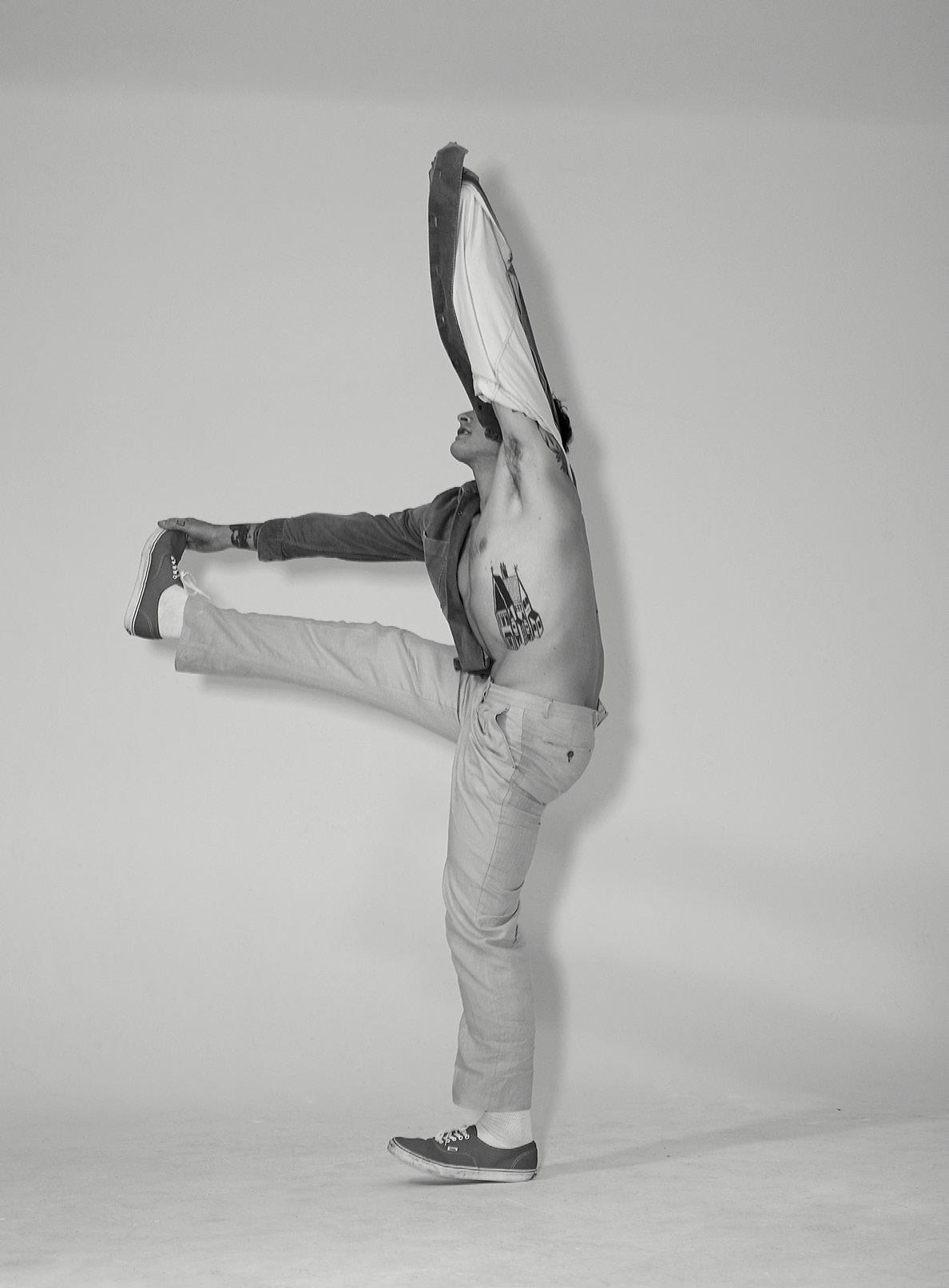
had just happened. Everyone was looking for the next Arctic Monkeys.” Over the course of 12 months starting in mid-2012, The 1975 released four EPs — Facedown, Sex, Music for Cars, and IV — leading up to their debut that fascinatingly showed the still-fledging emo-rockers exploring their own eclectic tendencies in real time, with R&B-tinged cuts and forays into electronic mu sic that foreshadowed the anything-goes creative approach the band’s become known for today. “It didn’t make sense to a lot of people,” Healy recalls regarding these early releases, claiming that A Brief Inquiry’s eclecticism effectively reflected a return to the creative attitude embodied in those EPs. “I just kept thinking, ‘I’m me, I’m who I’m talking to, and I know people like me.’ I knew that [embodying] no genre was representative of some thing modern.”
To this day, Healy and Daniel primarily work to gether on all aspects of songwriting; either Matty comes to George with something written on the guitar or keyboard, or George comes to Matty with something he composed on his computer. “Matty’s a better musician than me, but I know how to use the computer,” Daniel laughs. “Some times I’ll come to him with something and say, ‘Can you write a song around this?’ There always has to be a mutual understanding about what we’re trying to achieve.”
Of course, nothing lasts forever. Part of what makes The 1975’s music built to last is a sense of timelessness imbued even in an ultra-topical song like “Love It If We Made It” — power translated from pure passion — but it’s hard not to won der how a band that burns this brightly keeps its creative and functional flame from being extin guished. The question isn’t just on Healy’s mind, too: it’s what continues to push him forward. “I just want to keep making records, and I’m excited because I don’t know when I’m going to have this insanely creative period again,” he exclaims, his energy slowly and finally fading from a long day of busyness and an accompanying migraine. “I’ve spent so much of my life thinking about the future and worrying about stuff. To say what you want — it’s hard, isn’t it?”
October 13, 2019 | By Larry Fitzmauice"They were rejected by every major label,” Oborne remembers. “That’s when we decided to do it ourselves.”

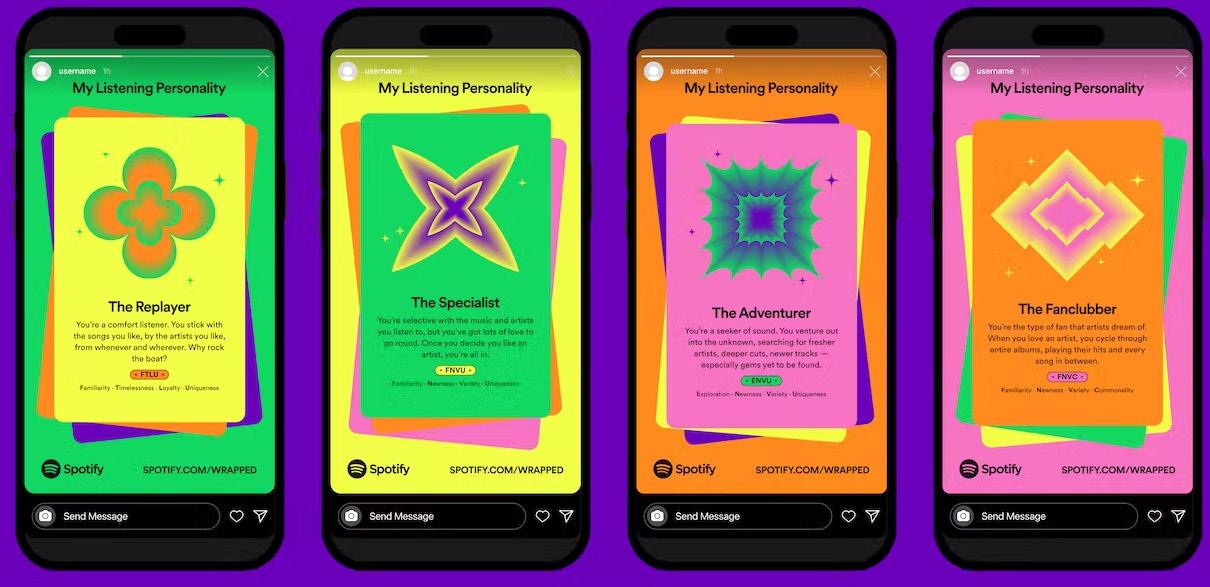
The British indie rocker headlined The Fonda Theatre in Hollywood on Thursday night. Touring his second studio album, “Zeros,” McKenna balanced out his set list with fan favorites from his 2017 debut record, “What Do You Think About the Car?” As he bolstered his bold showmanship with impassioned vocals and deft guitar playing, he deeply satisfied an already dedicated crowd that shouted the lyrics to every single song –down to the stylistic sighs of relief in McKenna’s tracks. As soon as the theater went pitch black, the audience members shrieked when they heard the first strum of McKenna’s guitar. Donning a ’70s-style brown jumpsuit reminiscent of the aforementioned rock band, McKenna opened with “Beautiful Faces” on a glittery gold guitar, during which the audience understood to “lift your hands up” along with him when he sang the lyric. Enraptured in the song, he didn’t even flinch when the mic stand unexpectedly swung out of place, and he simply bowed his neck down to sing into the mic – like any professional would. He was re warded as such when given his first flower bouquet of the night right after the song ended. For the majority of his rainbow-lit set, McKenna stuck to what he knows best: delivering commanding vocals and unabashedly playing his guitar all over the stage. Even though he fell into this back-and-forth pattern of actions as his set list followed suit by dipping between high-en ergy rock anthems and groovier ballads, he more than
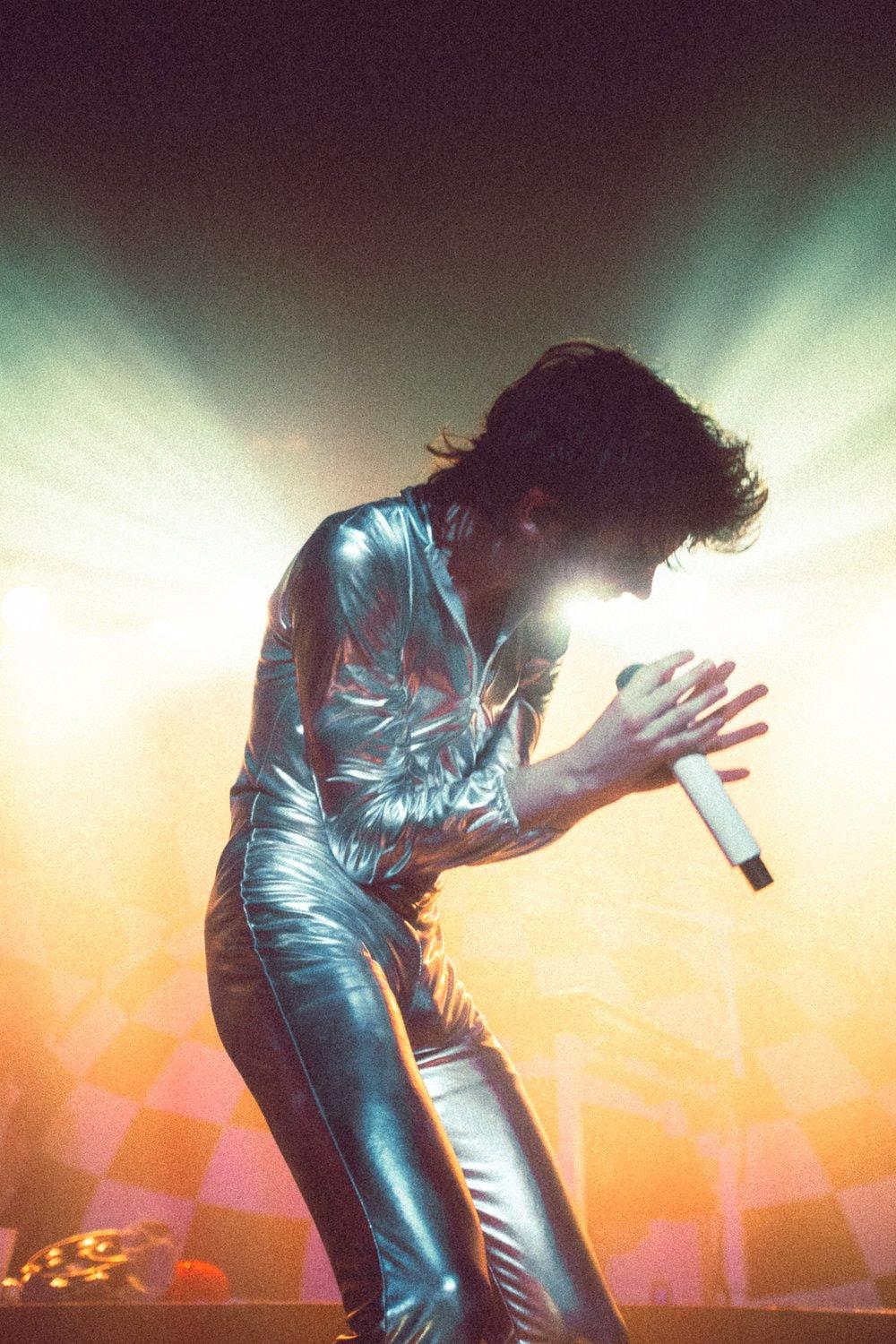
maintained audience engagement with a fervent mu sical performance and a dynamic stage presence, sassi ly posing with his hands on his hips and jumping with childlike excitement on the beat. Though he scarcely spoke to the crowd directly, this was easily forgiven by the singer’s impressive flexibility, as he switched out his guitars on almost every track with no hang-ups whatsoever between songs. While most of his sung discography highlighted his resonant lower register, his effortless delivery of the suspended high notes in “Make Me Your Queen,” “Emily” and “You Better Believe!!!” were a thrilling change of sound for the crowd. Falling to his knees at the bridge, his hands gripping the microphone as if he were praying, and reaching his hand out to the heavens, he teased fans when he took a pair of shoes and bowed with them as though that was the end. But fans knew better when he returned soon after for a five-song encore, playing his biggest hits
“Why Do You Feel So Down?” and “Brazil.”For a truly proper rock-and-roll finale, McKenna brilliantly transitioned into “British Bombs” with his United Kingdom flag guitar, appropriately sending him out. During the explosive outro, the artist made the stage his playground as he zipped down the top of his jump suit and spun around, performing high kicks and cart wheels before flinging himself and the mic stand to the ground. He then threw his towel to the crowd and gave his thanks by kissing an absolutely electrified audience goodbye.
10, 2022
| By Alexis Jones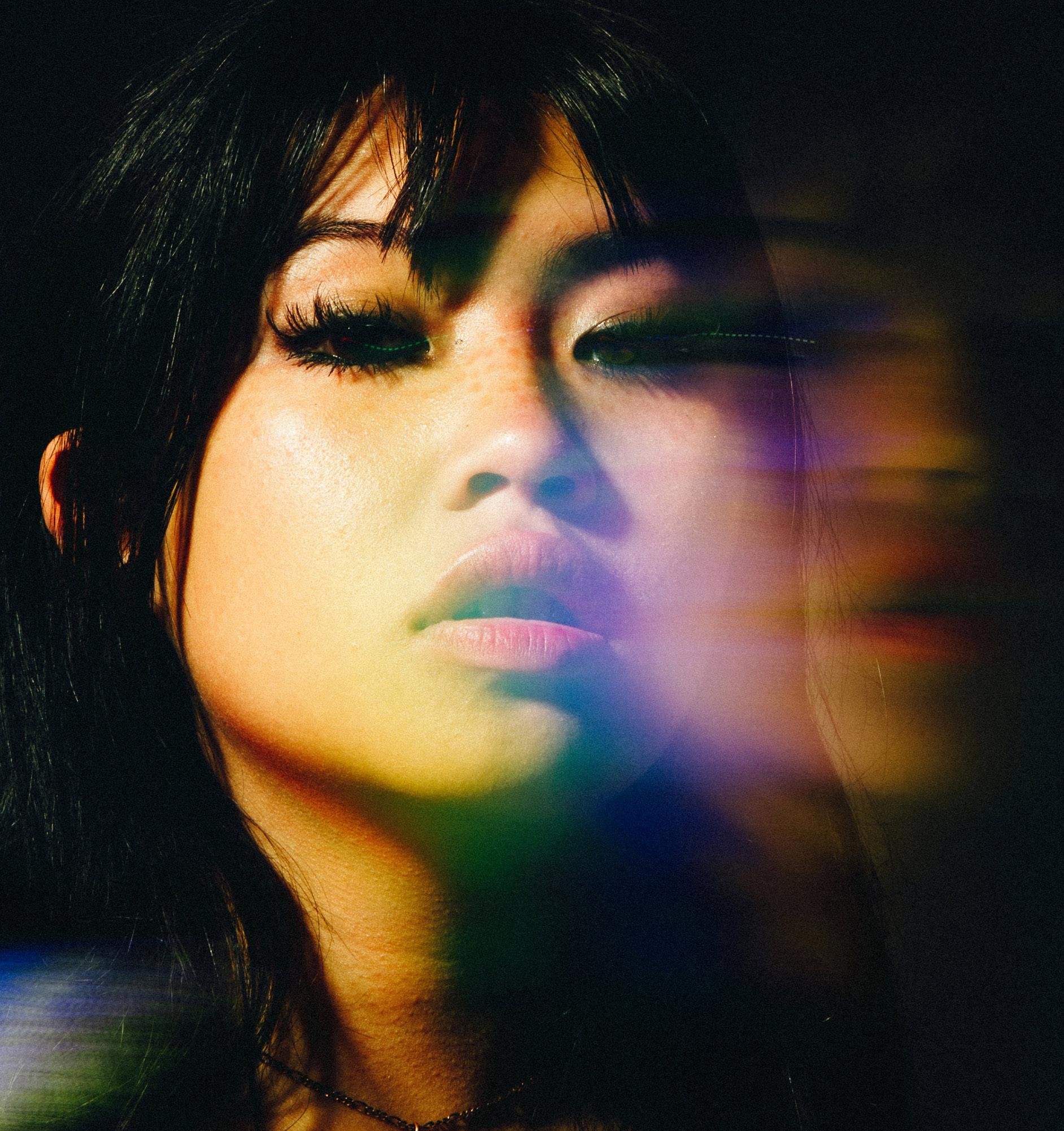 September 5, 2022 | By Jacob Utti
September 5, 2022 | By Jacob Utti
When Beatrice Laus (aka the popular songwriter and performer beabadoo bee) was first thinking about what her life might look like professionally, she didn’t consider being a global pop star. Who would ever assume something like that could happen? Instead, she want ed to be a nursery school teacher. Bea loved the idea that she could be the first person for young children to learn from outside of their homes and help explain to them what the world was all about. She would teach them about music and culture. “Just the very basic stuff,” she says, just to help them get on their first feet.
Bea on her latest LP, “Beatopia”: But as a burgeoning pop star—one who travels by giant, spaceship-like tour bus—Bea has taken on a different role, although it’s not so far off from her origi nal hope. These days, as she prepares to unleash her latest LP, Beatopia, on July 15, Bea remains a guide for those around her. “This was never really the plan,” says Bea of her big-name career.

“I love being able to perform, I love playing. I’m honestly grateful, but I had no idea. I thought I really wanted to be a nursery teacher. I just love the idea that I could be that person, the first person that a kid has to introduce them to life and what the real world is.”
Bea on the innocence of children and her Filipino background: For the Philippines-born U.K. native, the role would have been to bridge the gap between the innocence young kids have inherently and the often hard-todeal-with real-life world. And in turn, Bea would also be able to learn from the kids. To be around that wide-eyed open ness. That, she says, would be a boon to her.
“What children have is so innocent and their view of the world is so innocent,” she says. “I feel the more I’m with them, the more I’d have that essence. With
music, it feels a bit like that, too. Especially when girls come up to me who are Filipino who say I’ve inspired them to pick up an elec tric guitar and do what they love. I don’t think it’s my duty to, but when it happens and someone says that to me, it makes it so much more worthwhile.”
“What children have is so innocent and their view of the world is so innocent,” she says. “I feel the more I’m with them, the more I’d have that essence. With music, it feels a bit like that, too. Especially when girls come up to me who are Filipino who say I’ve inspired them to pick up an electric guitar and do what they love. I don’t think it’s my duty to, but when it happens and someone says that to me, it makes it so much more worthwhile.”
Bea on moving to London: Bea, who moved to London from the Philippines at 3 years old
as Alanis Morissette and “loads” of other female artists. Soon, music began to feel like therapy. First, she played violin for about seven years. Then at 17 years old, after she was kicked out of school, she began to play guitar. She wanted a hobby and her father wanted to make sure she had one, too—something to keep her occupied. So, she began to play a six-string and write.
“I was going through a lot,” Bea says. “Coming to terms with a lot of things that happened in my past. I was trying to be able to write it all down and make sense of all my feelings.”
Bea on getting kicked out of school: Bea says she was kicked out of school for no good rea son. While she admits she was at times badly behaved, she also wasn’t “the worst student in the world.” She was kicked out of school with a number of other girls, all of whom were people of color, Bea says. Girls who weren’t as rich as the others around her. The school decided to reverse its decision after one of the mothers threatened to sue.
But Bea had already found another school, one that was more accepting. The whole ordeal, though, made her feel discouraged and alienated. Thankfully, music helped. Playing violin at first aided her guitar acumen. And success would quickly follow. Bea released her first single, “Coffee,” in 2017, and her career began to take off. She followed that up with five different EPs from 2018-2021.
“All those different sounds I had explored were all nec essary to find my sound now,” Bea says. “In no way am I saying my sound now is my sound forever. I’m always going to evolve. But they definitely played a part in my maturing and learning about music.”
“It’s a way of writing my feelings down on paper and actually being able to communicate,” she says. “It is re ally helpful.”
Bea on hitting 5 billion streams: When it comes to her success today, Bea says she doesn’t think about it too much. She says it’s hard to conceptualize big numbers—like 5 billion total streams. At times, she says, being oblivious can be helpful and work in her favor. But the artist has given a lot of thought to her new album, Beatopia. She remembers coming up with the concept as a kid, drawing it out on a poster, only to later see that poster hung up and ridi
Beatopia is the second studio album by Filipi no-British singer and songwriter Beabadoobee. It was released on British independent label Dirty Hit on 15 July 2022.
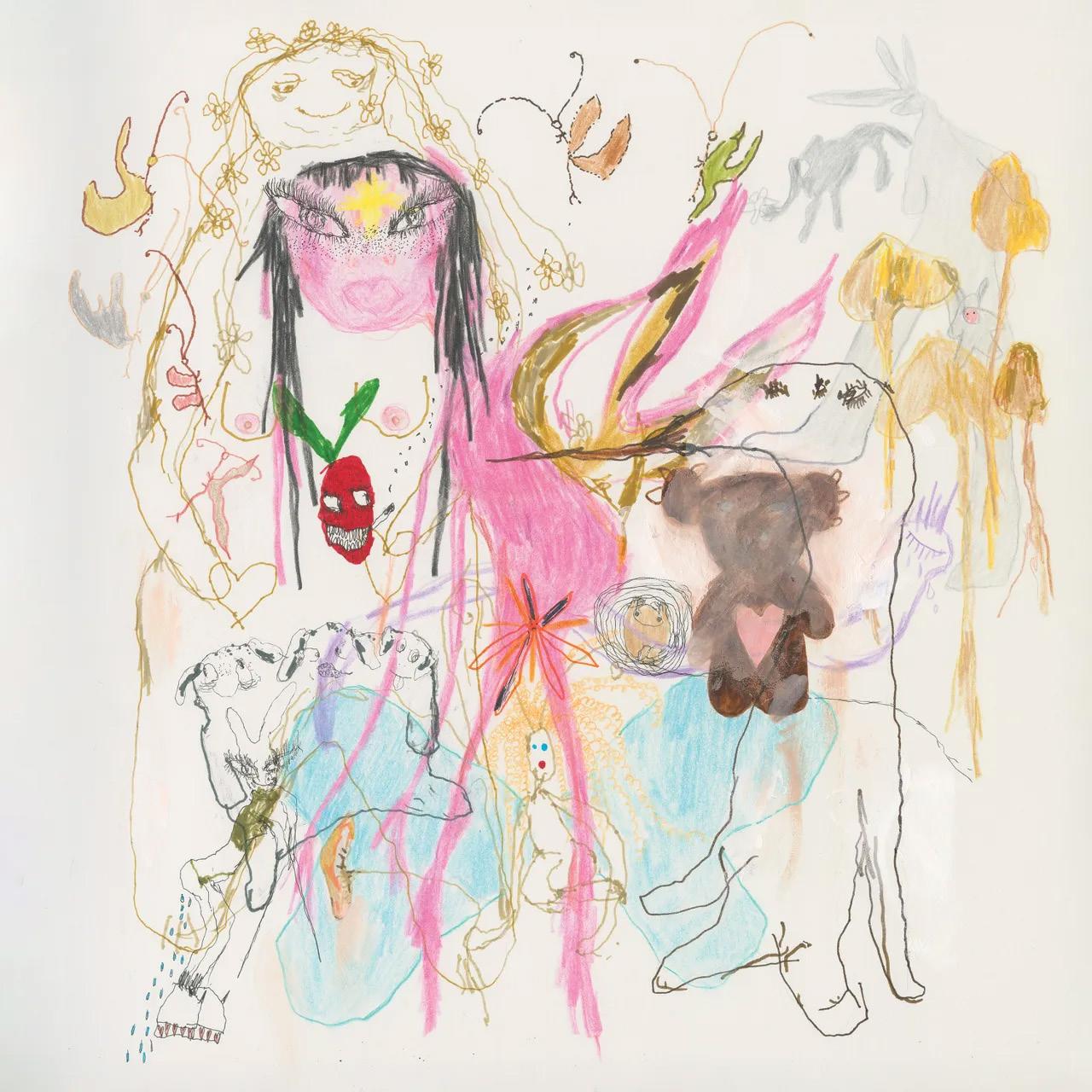
culed by her classmates and teacher. With that, she let the idea go—this thought of a safe space called Beatop ia—only more recently to return to it.
“I finally felt like I was comfortable enough to revisit it,” she says.
The new album is rich and full with catchy rock songs as well as ethereal pop numbers (including the gui tar-driven “Talk”). It’s an example of a meteoric talent who knows she can’t stay in any one place for too long. And now that it’s done, she’s massively proud of it, she says.
Now as the future continues to unfold for the 22-yearold musician, what matters most is the chance to write whatever she feels. To be free. And while there is pres sure on her as fans look to her for her perspective, she knows she still has to allow herself to fail and forgive those errors. It’s all part of her necessary growth: Even role models make mistakes.
“What I love most about music,” she says, “is being able to do whatever the fuck you want. To write about any thing you want and make anything you want. It’s your rules.”
